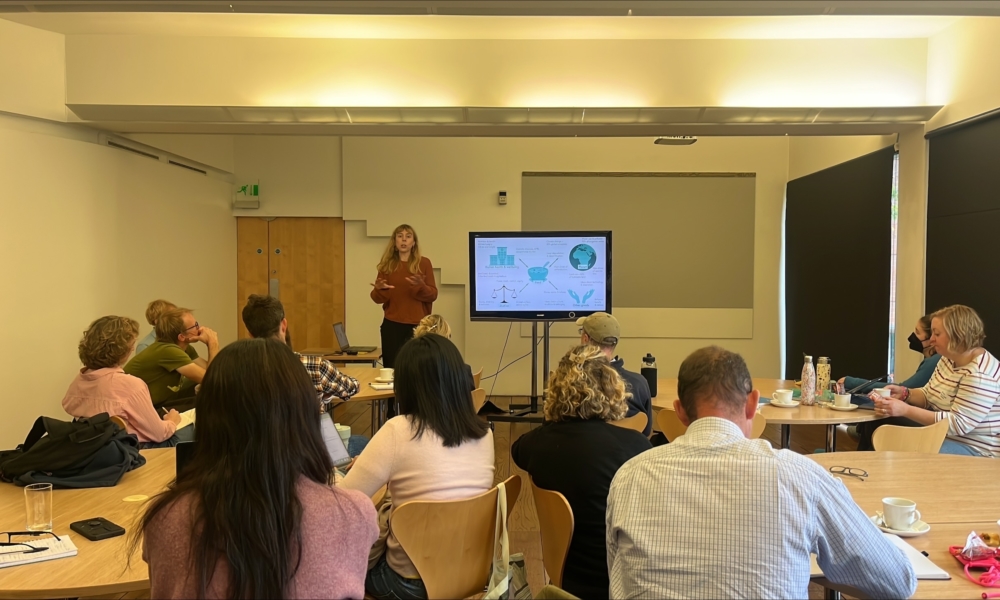Connecting practitioners and researchers
Recent News
- Generative Conflict: Embedding EDI in Research
- From beans to minerals: the new projects getting science into policy
- Hunger on our doorstep

On the 2nd October, twenty-five participants gathered at Keble College for Agile Connect: Practice, Research & Policy, a return-leg visit following our field trip to FAI Farms in the spring. That earlier visit grounded researchers in the practicalities of regenerative farming; this event brought researchers back into conversation with practitioners to discuss emerging findings from several Agile Sprints and their practical implications for farming and nature recovery.
We partnered again with Pasture for Life and welcomed practitioners from across nature-friendly farming sectors, including Pasture for Life staff and members, Sustainable Farming Incentive (SFI) pilot farmers, and officers from local protected area teams. The format combined four short, practitioner-facing presentations with time for questions, discussion and networking.
John Lynch (Agile Research Fellow) opened the day with findings from the Sprint on habitat greenhouse-gas emissions, setting out ways to think about methane and other emissions in restoration and land-management decisions. His summary focused on what the science can and cannot yet say about likely GHG outcomes from common interventions, and what this means for on-farm planning.
Next, Tamsin Blaxter and Richard Kipling (TABLE) presented the Regenerative Agriculture Sprint. Their research emphasised regenerative agriculture as a ‘community of practice’ rather than a fixed package of techniques or outcomes, a way to link farmers to evolving approaches, support system-level improvement, and resist an over-reliance on techno-fixes by farming with nature.
Jennifer Dodsworth (Agile Research Fellow) then outlined the early co-creation work for a forthcoming Sprint that will test the Agile Sprint model with multiple partner organisations. That work will explore evidence and decision-making processes in upland agri-environment agreements in the Lake District fells, with an emphasis on practitioner-led design and locally relevant metrics.
Finally, Sophus zu Ermgassen (Leverhulme Centre for Nature Recovery) presented the Sprint on implementing the Global Biodiversity Framework’s finance goals in the UK. His session focused on current models of nature finance, the risks and opportunities for farms and rural communities, and the kinds of policy safeguards needed to steer investment toward equitable, locally beneficial outcomes.
We are so grateful to all of our speakers and to the participants who joined us for the day; the questions, challenges and practical examples they brought made the event valuable for researchers and practitioners alike. The conversations we began at FAI Farms and continued at Keble are now informing new collaborations and the next steps for several Agile Sprints.
If you’d like to stay informed about follow-up activities or get involved in future events, please get in touch. We look forward to continuing these practical, practice-driven conversations.


